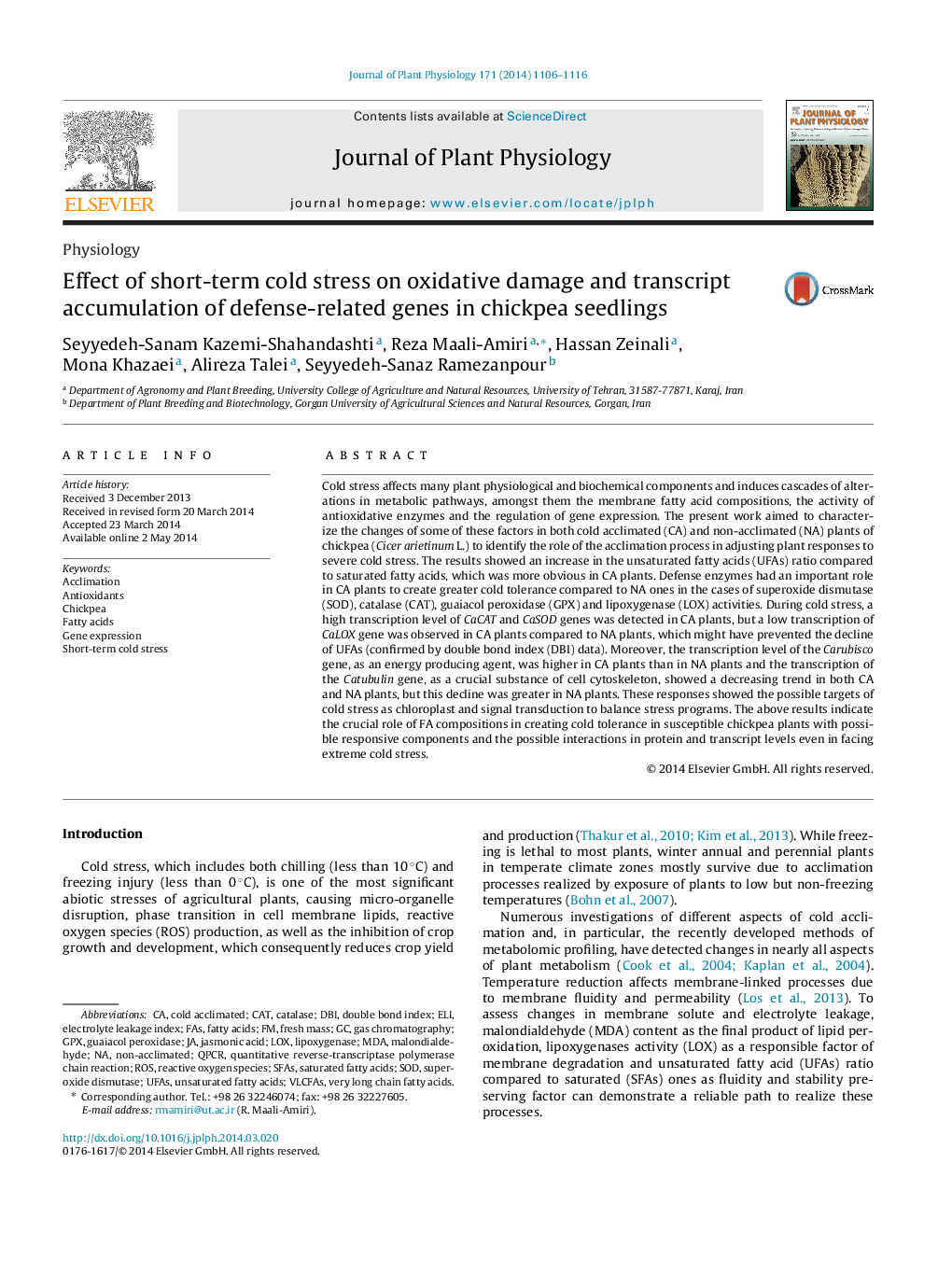| کد مقاله | کد نشریه | سال انتشار | مقاله انگلیسی | نسخه تمام متن |
|---|---|---|---|---|
| 2055747 | 1075774 | 2014 | 11 صفحه PDF | دانلود رایگان |
Cold stress affects many plant physiological and biochemical components and induces cascades of alterations in metabolic pathways, amongst them the membrane fatty acid compositions, the activity of antioxidative enzymes and the regulation of gene expression. The present work aimed to characterize the changes of some of these factors in both cold acclimated (CA) and non-acclimated (NA) plants of chickpea (Cicer arietinum L.) to identify the role of the acclimation process in adjusting plant responses to severe cold stress. The results showed an increase in the unsaturated fatty acids (UFAs) ratio compared to saturated fatty acids, which was more obvious in CA plants. Defense enzymes had an important role in CA plants to create greater cold tolerance compared to NA ones in the cases of superoxide dismutase (SOD), catalase (CAT), guaiacol peroxidase (GPX) and lipoxygenase (LOX) activities. During cold stress, a high transcription level of CaCAT and CaSOD genes was detected in CA plants, but a low transcription of CaLOX gene was observed in CA plants compared to NA plants, which might have prevented the decline of UFAs (confirmed by double bond index (DBI) data). Moreover, the transcription level of the Carubisco gene, as an energy producing agent, was higher in CA plants than in NA plants and the transcription of the Catubulin gene, as a crucial substance of cell cytoskeleton, showed a decreasing trend in both CA and NA plants, but this decline was greater in NA plants. These responses showed the possible targets of cold stress as chloroplast and signal transduction to balance stress programs. The above results indicate the crucial role of FA compositions in creating cold tolerance in susceptible chickpea plants with possible responsive components and the possible interactions in protein and transcript levels even in facing extreme cold stress.
Journal: Journal of Plant Physiology - Volume 171, Issue 13, 15 August 2014, Pages 1106–1116
